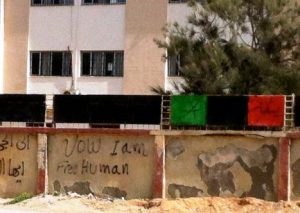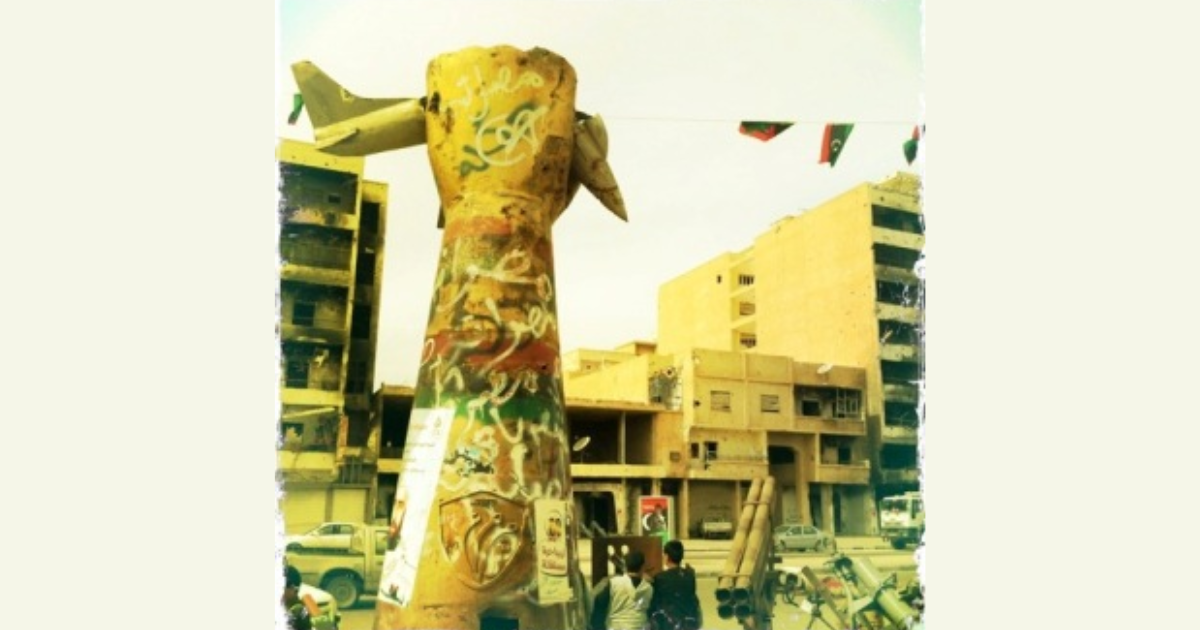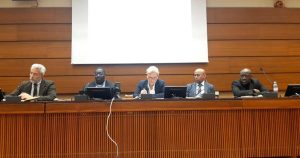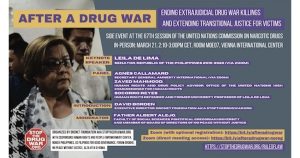It will soon be a year since the Libyan people officially liberated themselves after 42 years of dictatorial rule. Libya’s transition to democracy has a long way to go. No Peace Without Justice (NPWJ) has been at the side of democracy advocactes and human rights defenders in Libya for years, and it is committed to supporting civil society and nascent government institutions in their responsibility to complete their revolution by putting an end to Gaddafi’s legacy of impunity and corruption through a comprehensive process of justice and accountability.
“Change the colour” reads graffiti scrawled on some of Tripoli’s few remaining shutters still painted Gaddafi’s favoured colour of green. Most storeowners needed no such encouragement. With their trading license no longer conditional on a green shutter, shops across Libya are now painted everything from sky-blue to the colours of the flag that has come to symbolise their newfound freedom.
Not all the relics of Gaddafi’s rule are as easy to erase. A legacy of injustice and impunity has left deep scars on Libyan society, and a big part of the country’s transition to democracy now consists in rebuilding the democratic and judicial institutions all but destroyed by the previous regime. Similar efforts must be made to rebuild public confidence and trust in the rule of law, in the institutions of the State, and in each other. Like many dictators Gaddafi thrived as much on mistrust as he did on fear. One activist told me he never discussed politics in front of his young children for fear they would repeat any of what they had heard at school, where a teacher or parent might easily be one of the thousands of secret informants keeping would-be political dissidents in line.
Libya’s transitional justice process occupies a central role in facilitating this transformation in Libyan society. The process is well on its way, with a national transitional justice law providing a general framework, and a vibrant, if young, civil society already working to document both past and present abuses and to provide support to victims and prisoners.
NPWJ has been working in Libya to supports its transitional justice process since September 2011, with a permanent presence since March 2012. Our work focuses on providing training and expertise on some of the key aspects of transitional justice, including analysis of the large quantities of information that are likely to be central to the prosecution of the perpetrators of the most serious crimes, such as Saif al-Islam and Abdullah Senussi. NPWJ is also working to facilitate a national outreach program that successfully engages all Libyans in a discussion of their expectations of transitional justice.
It does not take many days in Libya to identify some of the major challenges to this kind of work. Unlike some other Arab Spring countries, Libya’s revolution was a long and destructive civil war. The country’s infrastructure is still recovering from the conflict, as well as from decades of neglect, corruption, and mismanagement. In cities like Tripoli and Benghazi plumes of smoke rise from the impromptu piles of garbage that keep growing along city streets and in vacant lots; traffic lights remain off, doing little to challenge the country’s record for the highest rate of motor vehicle accidents in the MENA region; and new SIM cards and internet connections remain hard to come by outside the major hotels. Recent estimates also suggest there are some 20 million weapons in Libya—more than three for every one of the country’s six million citizens. Gunfire still punctuates most nights in the stable cities that hug the Mediterranean shoreline. It is mostly aimed upwards towards the night sky, either in celebration or boredom, but recent events highlight the need for demobilisation and disarmament. Driving back from Misurata last week we received a number of calls warning us of disruptive protests along our natural route through Tripoli. What had started as a peaceful protest outside the Office of the Prime Minister over payments to those who had fought in the revolution quickly turned violent, and left one security guard dead, when a gun was drawn and the stand off escalated.
It is in cities like Misurata, however, where the costs of Libya’s revolution are the most visible. We meet with one of the city’s many new civil society organisations on the ground floor of a precarious and badly damaged building down an alleyway off Tripoli Street where much of the fighting was concentrated. I could not see a single building that had avoided the shells, mortars, and bullets were fired indiscriminately for months as the besieged city tried to hold out against Gaddafi’s forces.
Tripoli Street also testifies to the human and social cost of the revolution—a cost that is not as immediately apparent as the physical damage.
Behind the iconic statue of a fist reaching in to the sky and crushing a NATO jet in its bare hands—a symbol spectacularly and somewhat ironically repurposed by the Misurati brigades who brought it back as a trophy from Gaddafi’s Bab al-Azizia compound in Tripoli soon after the city fell—stands a non-descript concrete building. Inside, its walls are covered with pictures of thousands of young men. All are dead or still missing. Many died during the revolution, but many of the pictures are clearly older and capture the faces of victims killed long before, many in notorious prisons like Abu Salim. There is also a wall dedicated to pictures and identity cards of enemies still at large, many clearly from the nearby village of Tawergha, which sided with Gaddafi’s forces, with some also from Libya’s south or from one of Libya’s southern neighbours. While a few remain at large, many more are currently being held in one of the numerous unofficial detention centres across Libya.

Both sets of pictures speak to the challenges of transitional justice in Libya. Libya must both come to terms with the number of crimes in need of investigation, with some dating back over a decade, and with the number of prisoners currently in detention facing an uncertain judicial future and an increasingly vulnerable to well-documented incidents of torture and revenge.
The greatest challenge to the cause of accountability and justice comes, however, from the possibility of the gradual erosion of the necessary political will.
There is an entirely understandable and growing impatience amongst the general public in the Libyan cities I have visited. People are eager to return to ordinary life and to move on from the period of transition to a new period of democracy. Close to 2 million have already registered for June elections that will, by all accounts, be a little rushed, and citizen brigades like @CleanUpTripoli can be seen stepping in to deal with the garbage problem on their own without waiting for Government. People are increasingly looking to the future and are anxious to draw a line under the past.
A set of laws recently adopted by the National Transition Council (NTC) take this commitment to drawing a line under the past too far. Law 38 is of particular concern. Its Article 4 states, in simple terms, that there is to be no punishment for any act committed to protect or promote the revolution of 17 February, effectively amnestying its victors with no regard for the nature of the crime committed.
If a stable and democratic Libya governed by the rule of law and the protection of basic human rights is the ultimate goal of the revolution, this law must be seen as a contradiction in terms, and as the first major test to the nascent transitional justice community in Libya of which NPWJ is a proud partner. As countless other transitional societies have demonstrated, impunity and rewards for violence are too fragile a base upon which to build a stable democracy. A big part of NPWJ’s work going forward will likely, therefore, involve working with government and civil society to identify and communicate the public’s desire for accountability and justice as a basis for a new democratic Libya.
There are, however, many reasons to be optimistic about Libya’s future and transitional justice process. Libya’s revolution was a revolution of human rights from the very beginning. It was the arrest of the human rights lawyer Fathi Terbil that sparked the revolt in Benghazi that was eventually to spread to the entire country. Human rights have never been far from the agenda since, and the Libyan commitment to justice and accountability is nowhere more evident than in the work of the thousands of civil society organisations that have emerged since the revolution. One of the most rewarding aspects of working in Libya at this unique moment in its history has been to witness its civil society coming alive again, and taking root in front rooms, in old offices and shoe factories, and in the many improbably named coffee shops that have sprung up along the city streets. NPWJ have met representatives of many of these new organisations from across Libya, and we look forward to continuing to grow this network of transitional justice advocates and practitioners as the first anniversary of liberation draws nearer.
* Michael Gibb is currently based in Libya for NPWJ project on transitional justice.




